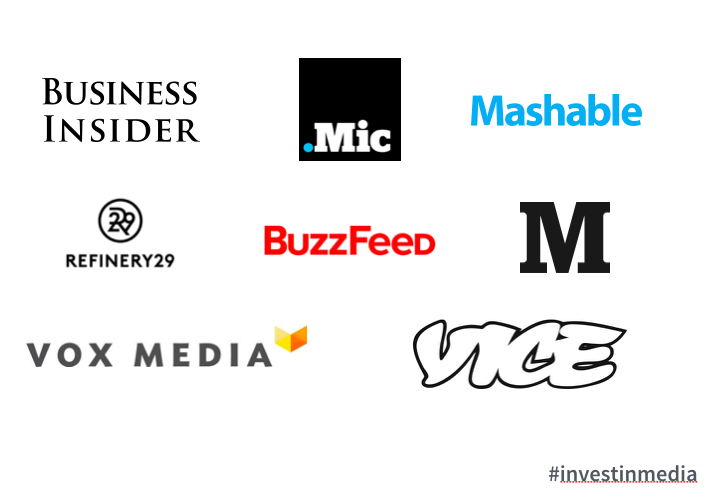The Endgame for Investment in Digital Publishing Companies
Why are venture capitalists, private equity firms and wealthy individuals pouring hundreds of millions of dollars into new media each year?
Last month, Parse.ly invited dozens of journalists and professionals from the publishing world to participate in a conversation that explored these questions and some related ones, including:
What about the industry and its future make it promising to investors?
How is this influx of money shaping the media business?
That last question is why the first one matters so much, and the reason why we decided that this was an important topic to dive into. Money matters, especially to an industry that’s constantly changing and trying to find its footing. New money being invested in new media is great news for the digital publishing world, and it’s something worth paying close attention to.
Funding allows for innovation and implementation of new ideas. Companies that raise substantial funds may have the luxury of experimenting with new types of content and new ways of delivering that content. And that sort of exploration is crucial, given that media organizations’ biggest competitors are progressive tech companies like Facebook and Snapchat, as The Washington Post’s Joey Marburger pointed out during our “Investments in Media” panel discussion.
The Washington Post happens to be a perfect example of a legacy media organization that can actually compete with the likes of Facebook. Marburger, who was part of our panel, noted that Post owner Jeff Bezos brought a startup culture of experimentation to the legacy media organization when he bought it in 2013. The entrepreneur has invested heavily in research and development at the company, and has integrated the editorial team with the business and product teams.
Does this mean that media companies need to be tech companies in order to be competitive in the ever-changing digital landscape? Probably. Panelist Erin Griffith of Fortune Magazine said that only now, over 20 years into the Internet era, are media companies finally realizing that investing in technology is crucial.
At the very least, they can’t be resistant to incorporating new technologies into their old strategies. It’s no coincidence that the media companies that received large amounts of funding over the past couple of years have been anything but traditional in their efforts to monetize, in the ways they define themselves and, of course, in their content.

The endgame for investees and investors is still up for discussion, but our panel did talk about what we can expect in the near future.
Andrew Cleland, a managing director at Comcast Ventures, said that media companies are starting to get smart about delivering highly curated content to individuals. And just as readers are becoming individualized in the eyes of companies, the people who create the content for those readers are, as well. At some point, “brand journalist” may trump “brand.” The internet will reward superstar journalists, who will rise to the top — if they manage to market themselves well. If these predictions come to fruition, then perhaps one day we will have a panel discussion on investment in new media journalists.
Our next event is right around the corner, and is a must-attend for anyone in digital publishing. “Media Analytics IRL: Lessons From the Experts” will feature speakers who are the best in the business, when it comes to data. Learn about what’s possible with digital analytics, accomplishments in the field at companies like The Daily Beast, ESPN and Vogue, and tips and tricks from the experts.
See you there!
